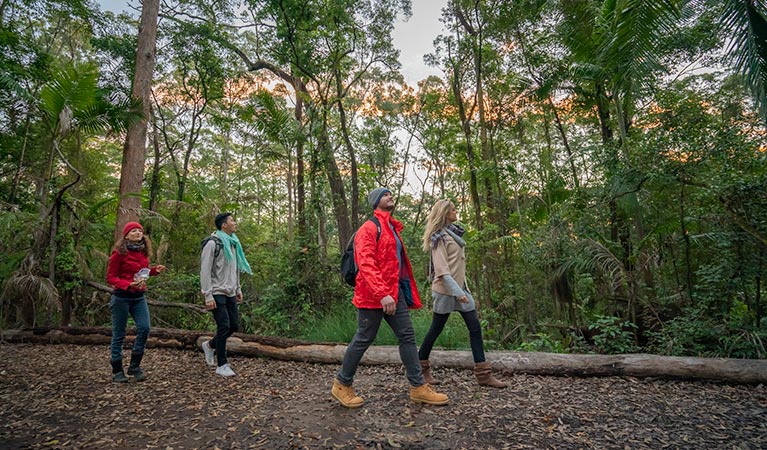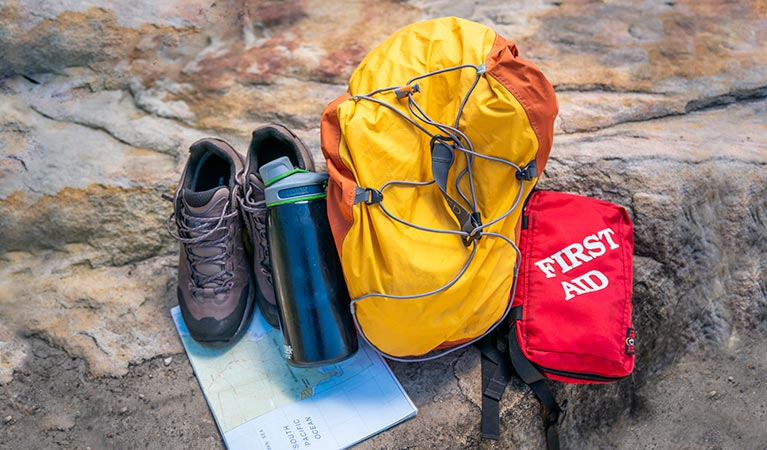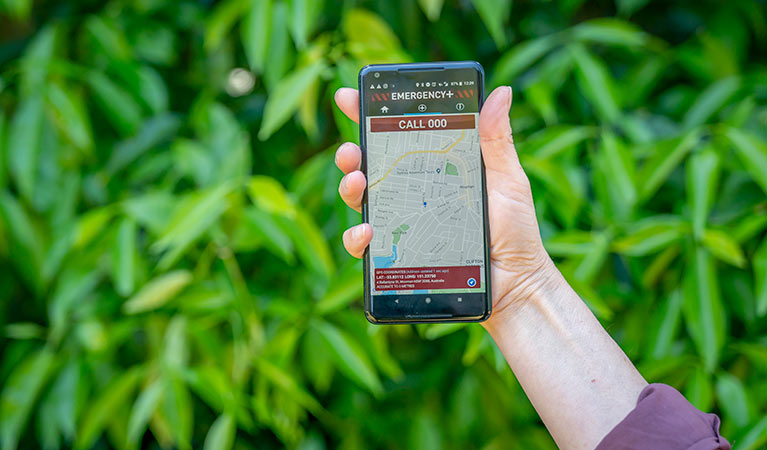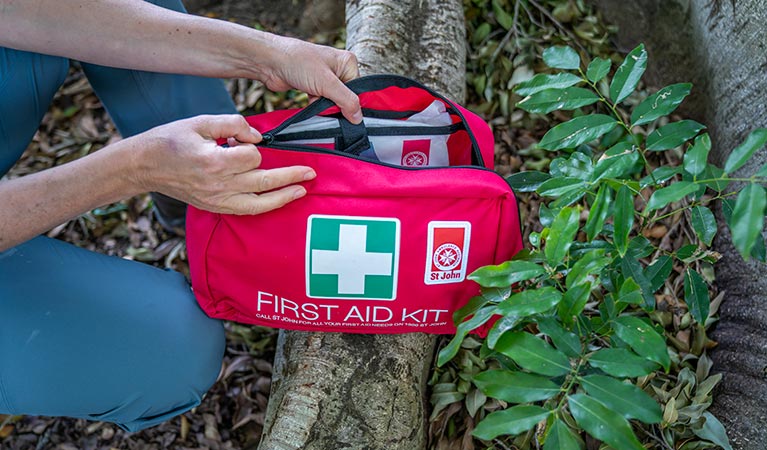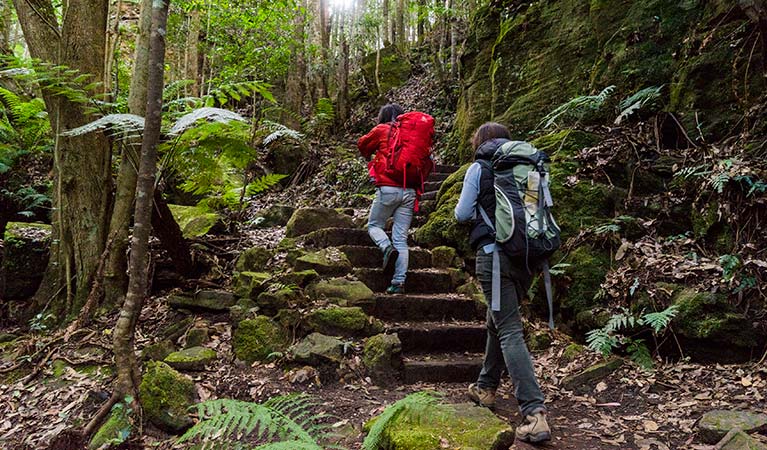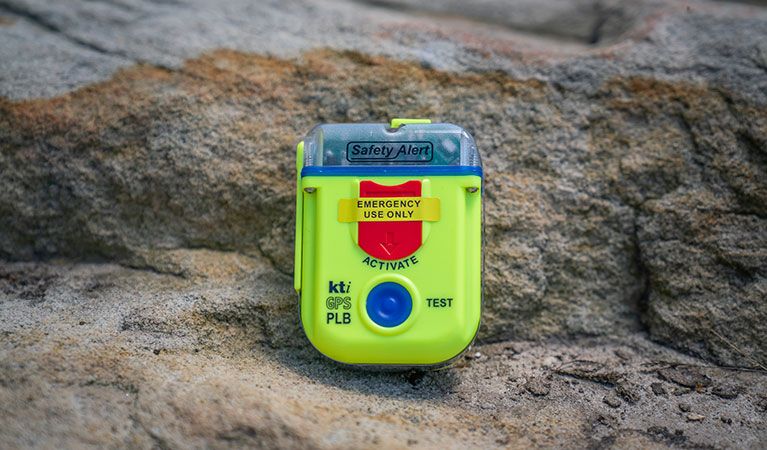Bushwalking safety
If you’re going bushwalking or backpack camping in NSW national parks—be prepared and stay safe.
Read more about Bushwalking safety
Plan your walk
- Research your walk and make sure everyone is comfortable with the planned route.
- Go at the pace of the slowest person and don’t overestimate your abilities.
- Walk in groups of 3 or more people. In an emergency one of you might need to wait with the injured person while the other gets help.
- Check the difficulty. Some walks need rock scrambling and abseiling skills. If you’re not sure of the difficulty, contact the local NPWS park office.
- Check weather forecasts and park alerts and be aware that weather conditions can change rapidly.
- You may come across waterfalls during a bushwalk. Learn more about staying safe around waterfalls.
- Download the NSW National Parks app and Emergency Plus app for location and emergency services information.
Tell somebody
Tell your family or friends where you're going, when you expect to return and who is with you. They can contact NSW Police if you don't return on time. You can do this by filling in a trip intention form.
Stay on track
Walking tracks in NSW national parks are not always signposted or regularly maintained so please take care.
To protect our landscapes for generations to come, please don't disturb plant and animal communities. Find out how to tread lightly and be a thoughtful walker.
What to wear
- Waterproof and windproof clothing to keep you warm.
- Comfortable, protective shoes. Don’t wear high heels or thongs.
- Lightweight layers that you can take off when you warm up and put back on when you cool down. Long, loose clothing to protect you from the sun, insects and scratches is ideal.
- Hat and sunscreen.
- Insect repellent.
What to bring
- At least 2L of water per person.
- Plenty of food for snacks and a bag for rubbish.
- Topographic map and compass (know how to use them) plus download the NSW National Parks app.
- Matches and a torch.
- First aid kit.
- Your mobile phone or a satellite phone. Download the Emergency Plus app.
- If you're really heading bush, a personal locator beacon (PLB) to use as a last resort.
- If you're camping take a good tent and sleeping bag.
Insects and ticks
In a natural environment there's sometimes no escape from pests including mosquitoes, ticks and insects. Wear long, loose clothing to prevent bites, spray your clothing and exposed skin with an insect repellent and reapply as directed. If you're camping be sure to close the tent flap at night. More information on tick bites is available at NSW Health.
Snakes, reptiles and other wildlife
Keep yourself and our wildlife safe by understanding the risks of wildlife encounters.
